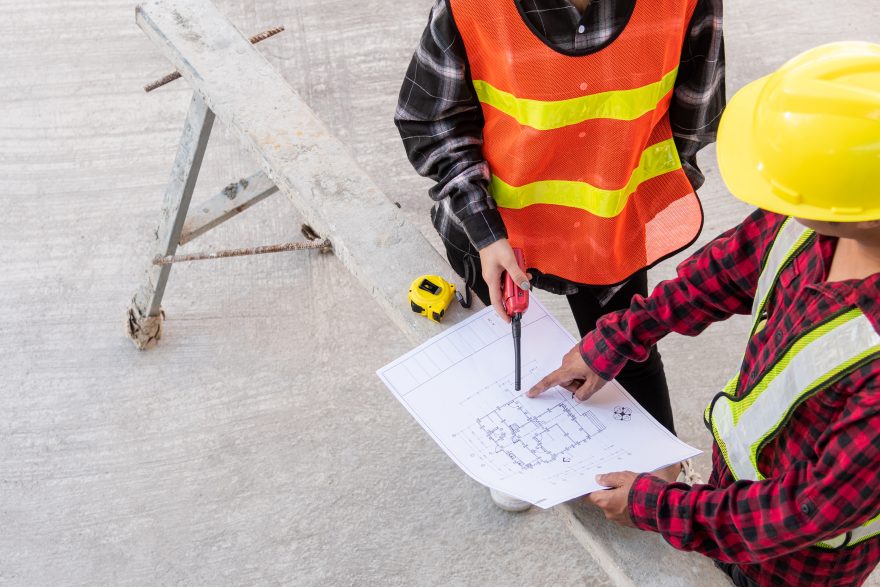
A construction site inspection is one of the most essential parts of any building project. It ensures that safety, quality, and regulatory standards are met at every stage of construction. Whether it involves a small renovation or a major development, regular inspections help identify problems early, improve work quality, and guarantee compliance with UK regulations.
Defining a Construction Site Inspection and Its Role
The construction site inspection definition is the process of examining and reviewing a construction site to ensure that all work meets approved design, safety, and quality requirements. It helps confirm that each phase of the project aligns with technical standards and legal obligations.
The role of a construction quality inspection is to monitor the condition and progress of the work, making sure that materials, methods, and workmanship meet the required standards. By doing this, inspections protect both workers and property owners from structural risks and legal issues.
Who Carries Out Site Inspections and When
In most cases, a building site inspection UK is carried out by qualified professionals such as building control officers, structural engineers, or health and safety inspectors. Clients may also hire inspection engineer construction specialists to provide independent assessments for additional assurance.
What a Site Inspection Covers: Safety, Quality and Compliance
During an inspection, professionals assess several aspects of the project to verify safety and compliance. Understanding what happens during a construction site inspection helps both contractors and clients prepare for the process. Typical areas of review include:
- Structural integrity and workmanship quality, which form part of the structural site inspection process
- Adherence to construction drawings and engineering plans
- Proper use of building materials and installation techniques
- Environmental impact and waste management practices
- Worker protection and compliance with health and safety site inspection construction requirements.
All findings are documented in a site inspection report construction, which outlines compliance levels, identifies any defects, and recommends corrective action.
Types and Stages of Site Inspections
There are several types of inspections that occur during a project. Each serves a specific purpose and happens at a different stage.
A pre-construction inspection takes place before any physical work begins. It ensures that the site, documentation, and safety plans are ready and that all materials and permits are in place.
Progress inspections happen during the build itself. They review ongoing work to confirm that it meets quality standards and safety regulations. These checks can cover areas such as foundation stability, framing, or installation of utilities.
A final inspection is conducted once the project is near completion. It ensures that all elements comply with approved plans and building codes and that the site is safe for occupation or use.
Legal and Regulatory Framework in the UK for Site Inspections
Every regulatory site inspection construction UK follows legal standards designed to protect workers and the public. Site inspections are governed by the Building Regulations, the Health and Safety at Work Act 1974, and the Construction (Design and Management) Regulations 2015.
Building control authorities and the Health and Safety Executive (HSE) have the authority to inspect construction sites at any stage. These inspections help confirm that all work meets design specifications, safety codes, and environmental requirements.
Non-compliance can lead to work stoppages, financial penalties, or legal action. That is why professional construction quality inspection services are essential to ensure that projects meet every regulatory requirement.
How to Prepare for a Site Inspection and Maximise Benefit?
Preparation is key to a successful inspection. Using a site inspection checklist construction helps ensure that your team is ready and that all records are complete. To prepare effectively:
- Keep your site tidy, safe, and accessible
- Ensure all drawings, permits, and previous reports are available
- Make sure workers understand safety protocols and equipment use
- Communicate openly with inspectors to clarify any technical questions.
Good preparation not only speeds up the inspection but also helps teams learn and improve. Each review provides valuable feedback that strengthens future performance and compliance.
Final Thoughts
At Abott Structural Engineers, we provide professional building site inspection UK services and detailed reports that cover every stage of construction. Whether you need safety checks, compliance reviews, or full structural evaluations, our expert team is here to support your project and keep it on track.
